Vitamin D Deficiency: Causes, Symptoms, and Treatment
Posted by Pankaj Dhiman on Nov 6th 2023
Beware: Winters Can Aggravate Vitamin-D Deficiency!
As winter approaches, many of us find ourselves retreating indoors, seeking warmth and comfort. However, this change in lifestyle can have unintended consequences on our health, particularly when it comes to Vitamin D deficiency. In this blog, we will explore the benefits of Vitamin D, its sources, the causes of deficiency, symptoms, diagnosis, and why it's essential to address this issue, especially during the colder months.
Benefits of Vitamin D
Vitamin D, often referred to as the "sunshine vitamin," plays a crucial role in maintaining our overall health. Here are some of the key benefits of this essential nutrient:
- Bone Health: Vitamin D is instrumental in the absorption of calcium, which is vital for maintaining strong and healthy bones. It helps prevent conditions like osteoporosis and fractures.
- Immune System Support: Adequate levels of Vitamin D are linked to a robust immune system, helping the body fight off infections and diseases.
- Mood and Mental Health: Research suggests that Vitamin D may contribute to better mental well-being, potentially reducing the risk of depression and seasonal affective disorder (SAD).
- Heart Health: There's evidence to suggest that Vitamin D may help regulate blood pressure and reduce the risk of heart disease.
- Cancer Prevention: While more research is needed, some studies indicate that adequate Vitamin D levels might lower the risk of certain cancers.
- Weight Management: Vitamin D deficiency has been associated with weight gain and obesity, making it an essential component of a healthy lifestyle.
Must Read - IV Flush Solution: Uses, Risks, Recalls, and Settlements
Sources of Vitamin D
Now that we understand the importance of Vitamin D, let's explore where you can get this essential nutrient:
- Sunlight: The most natural source of Vitamin D is sunlight. When your skin is exposed to UVB rays, it can produce Vitamin D. Spending about 15-20 minutes in the sun each day can help maintain healthy levels.
- Diet: While it's challenging to obtain sufficient Vitamin D solely from food, there are dietary sources that can contribute, such as fatty fish (salmon, mackerel, and sardines), egg yolks, and fortified foods like milk and breakfast cereals.
- Supplements: In cases where sun exposure and dietary sources are insufficient, supplements are a practical way to ensure you meet your daily Vitamin D requirements.
Causes of Vitamin D Deficiency
Vitamin D deficiency is more common than you might think, and several factors contribute to this issue:
- Lack of Sunlight: In the winter months, days are shorter, and many people spend less time outdoors. Reduced sun exposure can lead to Vitamin D deficiency.
- Skin Color: People with darker skin produce less Vitamin D when exposed to sunlight, making them more susceptible to deficiency.
- Geographic Location: Those living in regions with limited sunlight, like northern latitudes, are at a higher risk of deficiency.
- Aging: As we age, our skin becomes less efficient at producing Vitamin D, and our kidneys are less capable of converting it into its active form.
- Obesity: Vitamin D is fat-soluble, which means it can get trapped in body fat, reducing its availability for use in the body.
Must Read - 8 Challenges as a Nurse and Tips for Overcoming Them in 2024
Symptoms of Vitamin D Deficiency
Identifying Vitamin D deficiency can be challenging because it often presents with subtle symptoms. Some common signs to look out for include:
- Fatigue
- Muscle pain and weakness
- Bone pain
- Mood changes, including depression
- Frequent illness and infections
- Hair loss
If you're experiencing any of these symptoms, it's a good idea to consult a healthcare professional to rule out Vitamin D deficiency.
Diagnosis of Vitamin D Deficiency
To diagnose Vitamin D deficiency, a blood test is conducted to measure the levels of 25-hydroxyvitamin D in your blood. This test can determine whether you have a deficiency and how severe it is. Your healthcare provider can then recommend appropriate steps to address the deficiency.
Must Read - Buy Hand Sanitizer in Bulk at Wholesale Prices
Why talk of vitamin D Deficiency Now?
Winter's arrival is a crucial time to discuss Vitamin D deficiency. As we've previously mentioned, reduced sunlight exposure during the winter months can exacerbate this problem. The combination of spending more time indoors and covering up when going outside can lead to a significant drop in Vitamin D production in our bodies. Therefore, it's essential to pay attention to our Vitamin D intake and consider supplementation when necessary.
Can the Deficiency Be Corrected?
The good news is that Vitamin D deficiency can often be corrected with the right strategies. Here's what you can do:
- Sunlight: Try to spend time outdoors during the sunniest part of the day. Even a short walk can make a difference.
- Diet: Incorporate foods rich in Vitamin D, such as fatty fish and fortified dairy products, into your meals.
- Supplements: Consult your healthcare provider before starting any supplementation. They can advise you on the appropriate dosage and form of Vitamin D supplements.
- Regular Check-ups: Monitoring your Vitamin D levels through blood tests can help you track your progress and adjust your approach as needed.
Must Read - 11 Best Wound Closure Products at Wholesale Prices for Effective Healing
A Word of Caution
Before we conclude, our experts want to emphasize the importance of consulting a healthcare professional when it comes to managing Vitamin D deficiency. While it's essential to address this issue, over-supplementing with Vitamin D can also have adverse effects. A healthcare provider can assess your specific needs and recommend the right course of action tailored to your individual health.
In conclusion, as the winter season approaches, it's crucial to be mindful of the potential impact on your Vitamin D levels. By understanding the benefits of Vitamin D, recognizing its sources, and taking steps to address deficiency, you can maintain your health and well-being during the colder months. Remember, when it comes to your health, knowledge and proactive measures are your best allies.





























































